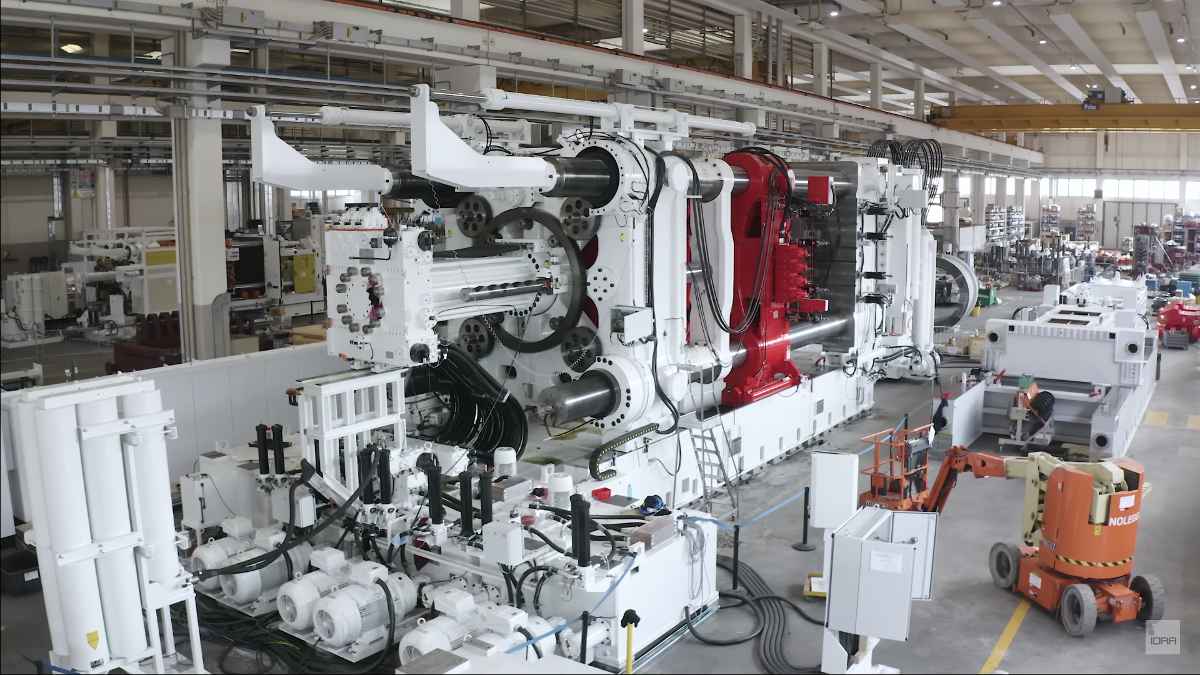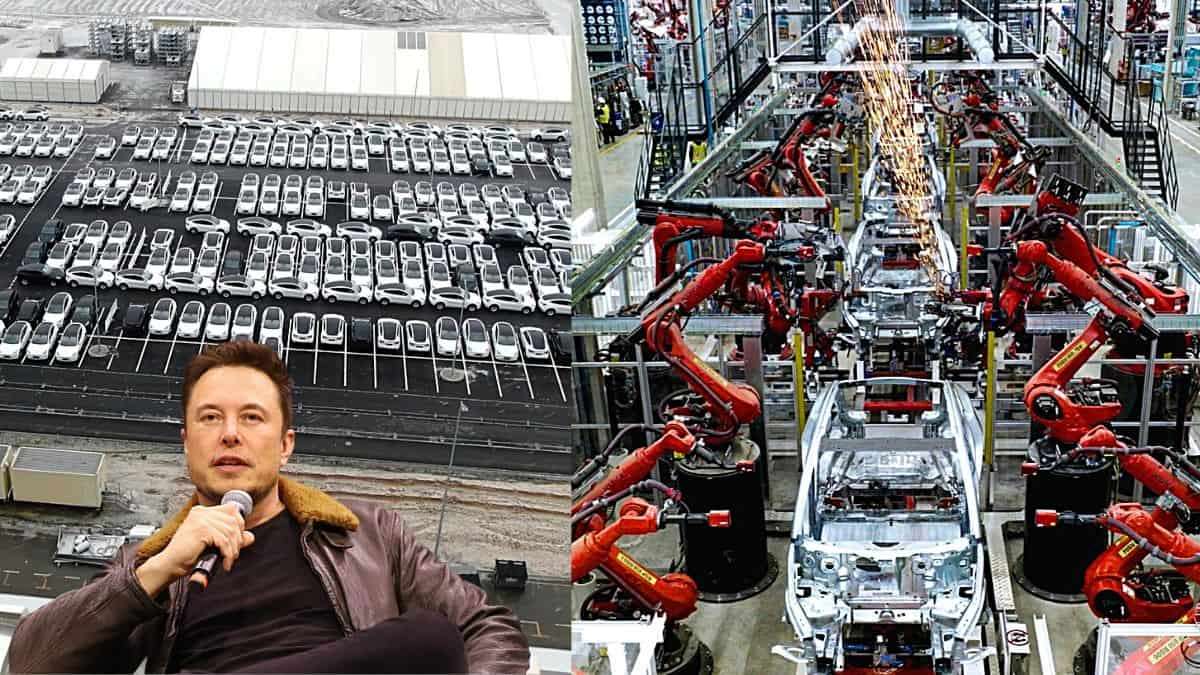Having personally delved into Tesla's methods by publishing stories about Tesla daily and making Tesla News videos on Torque News Youtube Channel, I have learned that a manufacturing revolution is underway and Tesla is leading it. Let's explore how Tesla's approach can inspire companies and transform production methods.
Currently valued at $780 billion on the stock exchange, Tesla has even surpassed the $1 trillion mark, surpassing the combined value of all other automakers. A crucial factor contributing to this success is the steady growth in Tesla's production capacity. In 2022, the company manufactured 40 percent more vehicles compared to the previous year. Despite occasional criticism, such as temporary layoffs of around 1,000 workers at the Brandenburg plant impacting the planned doubling of output, the focus should be on the remarkable achievement of establishing highly efficient factories.
Tesla's success doesn't solely rely on continuously adding new production facilities and gigafactories. Instead, it stems from Tesla team's impressive innovation across all areas. Apart from manufacturing the world's best-selling electric car, the Model Y, Tesla also produces solar systems and battery storage at an astonishing pace. From the outset, the company prioritized innovative production techniques like injection molding, catching the attention of competitors. Toyota engineers, renowned for their production and efficiency prowess, dismantled a Tesla Model Y and were awestruck. Describing it as a work of art, they are keen to draw inspiration from Tesla's approach, with other manufacturers also eyeing Giga die casting for their future endeavors.

However, it is Tesla's internal processes that largely contribute to their success. Under Elon Musk's leadership, Tesla implemented a management and decision-making culture that outshines traditional production companies in terms of efficiency. Departing from conventional paradigms in vehicle construction, Tesla focuses on harnessing the innovation and continuous improvement potential of its workforce.
Emphasizing higher production speed, Tesla's innovative approach has bestowed upon them an almost insurmountable lead in productivity, throughput time, and employee time per vehicle. Elon Musk's First Principle Thinking plays a pivotal role, breaking down complex problems into elemental assumptions and principles. This allows decision-makers to concentrate fully on optimizing manufacturing processes and discovering innovative solutions.
For example, Tesla adopted the revolutionary aluminum die-casting process for the underbody production, enabling the creation of the Model Y's lower frame as a single component. This eliminated 171 parts and over 1,600 weld seams, leading to improved efficiency and cost reduction.
Tesla applies this strategy across the entire company, gradually reducing and simplifying both automated and manual work processes. Consequently, this enhances production quality and increases productivity, measured by vehicles delivered per employee hour.
Moreover, Tesla harnesses the innovative power of its employees by involving them in the entire improvement process. Unlike rigid hierarchical management with top-down decision-making, Tesla fosters a culture that encourages employees to identify waste, improve processes, and contribute their own ideas.
Teams at Tesla operate in flexible "full-stack teams," self-organizing groups of employees possessing all the necessary expertise. These teams can swiftly and flexibly address challenges, without being impeded by managerial bureaucracy or approvals. This culture of decentralized decision-making is something many car manufacturing companies are still adapting to.
Car companies stand to learn a great deal from Tesla's innovative leadership and manufacturing strategies, enabling them to gain a competitive edge in today's manufacturing landscape. Tesla's decentralized management based on First Principle Thinking, coupled with innovative production approaches and continuous improvement within manufacturing, positions them as pioneers in the industry. The efficiency and cost savings achieved by Tesla are unparalleled, solidifying their position as the world's leading electric car manufacturer.
By integrating these principles into their own business models, many car production production companies can quickly enhance their competitiveness and secure a lasting position in the evolving manufacturing industry.
The key takeaway from Tesla's model is the importance of embracing innovation and empowering employees. Traditional manufacturing companies often adhere to outdated paradigms, limiting their ability to adapt and improve. Tesla's approach challenges this status quo by encouraging employees to contribute ideas and actively participate in the improvement process. This not only fosters a culture of continuous innovation but also taps into the expertise and proximity of those working on the production lines.
Furthermore, Tesla's focus on higher production speed and efficiency has propelled them ahead of their competitors. By employing First Principle Thinking, they have been able to streamline manufacturing processes, eliminate unnecessary components, and optimize productivity. This mindset of constantly challenging the status quo and seeking innovative solutions has been instrumental in Tesla's success.
While Tesla's achievements are impressive, it is important to acknowledge that each company operates within its unique context. What works for Tesla may not directly translate to every manufacturing company. However, the underlying principles of innovation, employee empowerment, and process optimization are universally applicable and can be tailored to suit individual circumstances.
In a rapidly evolving industry where competition is fierce, companies must be willing to adapt and embrace new approaches to manufacturing. Tesla's success serves as a testament to the transformative power of innovative strategies and a no-nonsense, results-oriented mindset.
As Tesla continues to push the boundaries of manufacturing efficiency, it provides a roadmap for other companies to double their production and achieve remarkable results.
The era of traditional manufacturing is gradually giving way to a new paradigm, one that emphasizes agility, innovation, and efficiency. Tesla's model stands at the forefront of this revolution, serving as an exemplar of what is possible when companies dare to challenge the status quo.
How do you think other car manufacturing companies can benefit from Tesla? Let me know your thoughts, please, in the comments section below.
Armen Hareyan is the founder and the Editor in Chief of Torque News. He founded TorqueNews.com in 2010, which since then has been publishing expert news and analysis about the automotive industry. He can be reached at Torque News Twitter, Facebok, Linkedin and Youtube.





